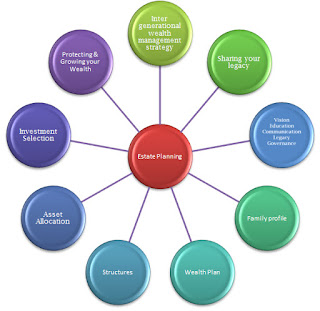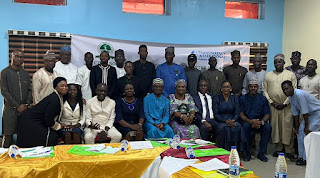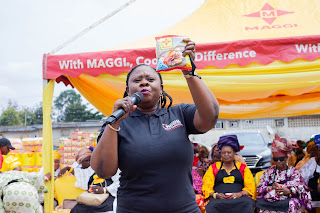Agonies of internally displaced persons
Neighbours call him Rasak. He told our reporter that he is nine and an escapee from Dalori camp in Maiduguri, Borno State. Beside him were women with children appearing dejected and not sure of what tomorrow will bring for them. These women were seen at Egbeda Bus-stop, Lagos with tattered, worn-out clothes together with their belongings which appeared worthless and plates begging.
One of the women who spoke to our reporter confirmed that they were escapees from Dalori camp in Maiduguri, adding that the boy escaped with them. In smattering pidgin, she said that the boy lost his parents in a recent skirmish involving Islamist insurgents, known as Boko Haram and local hunters who attempted to ward them off. Rasak made it to the camp with a group of internally displaced persons, IDPs, who have no home or place to go after the militants sacked their villages and towns in Maiduguri. She also said that they were being taken care of by National Emergency Management Agency (NEMA) along with the boy and other minors who have no relatives.
However, she said that they left the camp after an attack by the dreaded insurgents attacked the village near the camp. Some of them who were seen with babies told gory tales of how pregnant women of how women deliver their babies through the help of unskilled medical attendants. Amina Yusuf, from Dalori, travelled to a small village near Ngala LGA to be delivered of her baby. On getting to the place, she learnt that doctors and nurses had deserted the hospitals. She had to move to another town. But, the village has also been sacked by insurgents. She eventually delivered without skilled medical attendants.
 |
A typical picture of Internal displaced persons’ camp.
|
These women and Rasak are among the over one million victims of the insurgency currently ravaging the northern part of the country. The issue was the focus at a recent United Nations Children’s Fund (UNICEF) facilitated meeting on emergencies, ethical reporting and human interest stories in Kano. According to the IOM DTM report in April, there are 1.3 million IDPs in the three North East states, indicating almost 300,000 newly displaced people since February.
While these refugees, known more as IDPs have suffered deprivations in terms of death of loved ones, displacements from home and familiar environment, the bigger problem has been in sustaining and resettling the IDPs. Speaking during the meeting on emergencies, ethical reporting and human interest stories, Soji Adeniyi, UNICEF’S Monitoring and Evaluation Officer, said: “Since 2011, the population of the North East of Nigeria States have been affected by the insurgency between Jama’atu Ahlis Sunna Lidda’awati wal-Jihad, commonly known as ‘Boko Haram’, and governmental forces. “The government declared a State of Emergency (SoE) on 14 May 2013 in the three North Eastern states of Borno, Yobe, and Adamawa and imposed curfews. According to the IOM DTM report in April 2015, there are 1.3 million IDPs in the three North East states, indicating almost 300,000 newly displaced people since February.
Of the estimated 1,307,763 IDPs in Borno, Yobe, and Adamawa states, 89.9 per cent live with host communities, while only 10.1 per cent live in camps.” Those that arrive at the camps are registered and given access to necessities such as food, water, health care, shelter and education. The majority of IDPs, however, never make it into a formal camp. Some are turned away because the camps are overcrowded. Others are too afraid to enter the camps, and hide out in remote villages. Many people end up sleeping under trees, in abandoned churches and school buildings, or in empty fields.
International organisations believe that only a minority are going into formal IDP camps and the majority are moving into host communities and so it may be difficult to know how many they are and to register them in order to provide assistance. Geoffrey Njoku, Communication Specialist, UNICEF and Judith Giwa-Amu, UNICEF Education Officer, said that education is critical in ensuring the protection of children by offering a safe environment Judith stressed in her presentation stressed: “Access to education in conditions of crisis is important because, education is a fundamental right of all children (Article 28 of CRC).”
This story was published in Newswatch Times on July 16, 2015.



Comments
Post a Comment